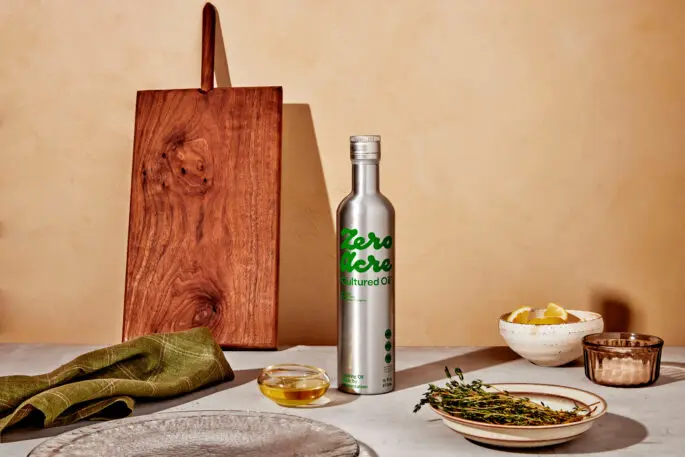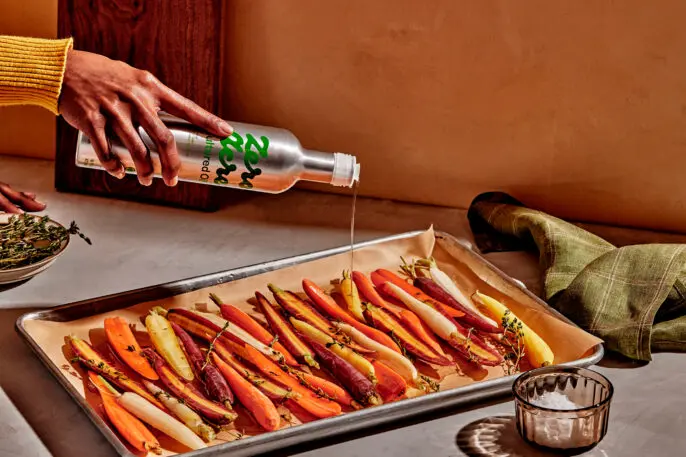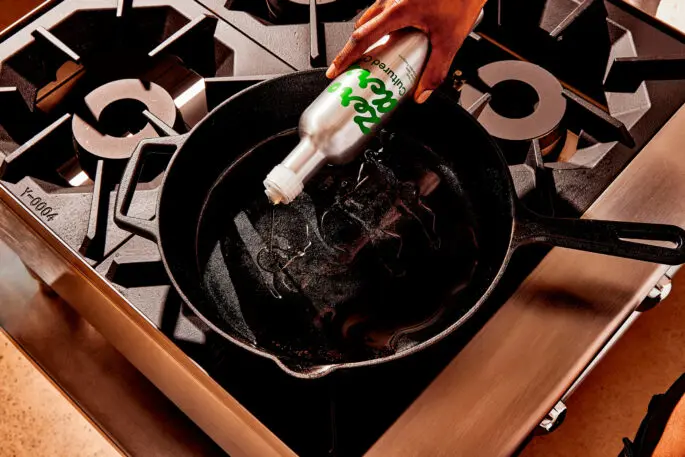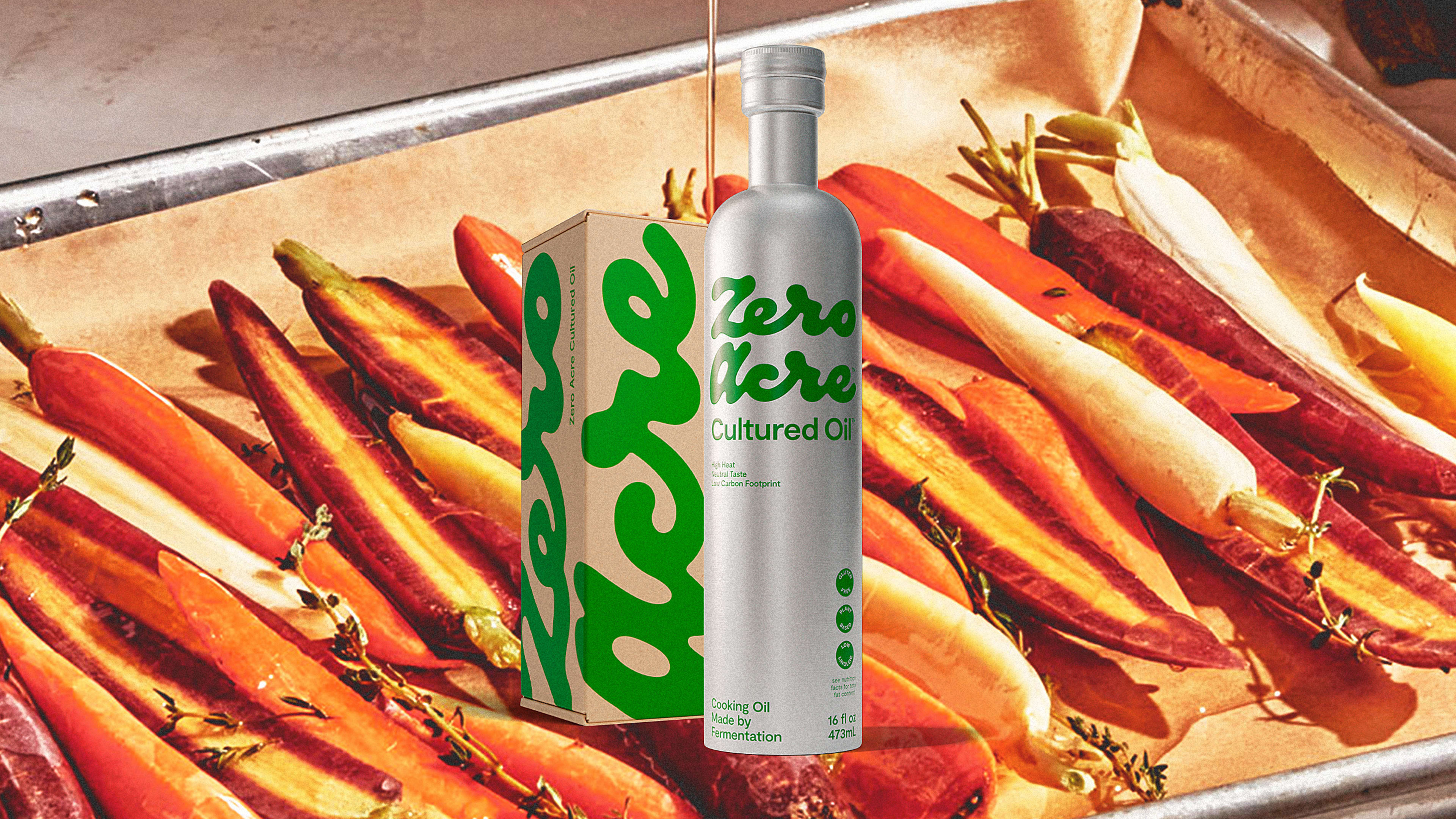The world runs on vegetable oil. It’s the third-most-consumed food globally after rice and wheat. It’s in your morning croissant and your oat milk, your salad dressing, your afternoon snack bar, and your midnight cookie.
Our obsession with vegetable oil is so big that we use more land—around 20% to 30% of all the world’s agricultural space—for vegetable oil crops than for fruits, vegetables, legumes, and nuts combined. All of this leads to devastating deforestation, biodiversity loss, and climate change. But what if we could grow cooking oil in a lab?

Vegetable oils are bad for the environment, but they’ve also been linked with obesity, heart disease, cancer, and other diseases. That’s why Jeff Nobbs, cofounder and CEO of Zero Acre, has been trying to take them out of the food system for years—first with a keto-friendly restaurant called Kitava in San Francisco, then with nutrition-tracking software. Now his company is looking to make cooking oil by fermenting microbes rather than harvesting crops.

So, let’s back up a little. Fermentation involves a naturally occurring chemical reaction between two main groups of ingredients: microorganisms and natural sugars. Microorganisms include bacteria, microalgae, yeast, and other fungi; natural sugars can be found in a variety of products, from wheat to milk to grapes.
To make wine, for example, winemakers add yeast to grape juice. The yeast then converts, or ferments, the natural sugars of the grapes into ethanol, and you have yourself a crisp glass of chardonnay. But you can thank fermentation for an abundance of other foods like bread, cheese, yogurt, pickles, and even chocolate.
When it comes to cooking oil, the process is similar. Nobbs won’t disclose the exact kind of microorganism being used to produce Zero Acre’s Cultured Oil, but he says the company works with both non-GMO yeast and microalgae. “We focus on cultures that naturally produce healthy fats, and yeast and microalgae do that efficiently,” he says.
The process starts with a proprietary culture made up of food-producing microorganisms (yeast or microalgae) that is fed natural plants like sugar beet and sugarcane. (The company doesn’t grow these directly, but both are part of its supply chain.)
Over the course of a few days, the microorganisms convert, or ferment, the natural plant sugars into oils or fats. The resulting mixture is then pressed and the oil is released, separated, filtered, and cultured oil is born. (Nobbs describes the taste as “lightly buttery,” though you can taste it only if you have it straight up with a spoon.)

That’s if the company manages to scale up. According to Kyria Boundy-Mills, a microbiologist at the University of California, Davis, who has studied yeast oils for the past 10 years, “microbial oils” like the one Zero Acre is producing have been studied for at least 80 years, “mostly for fuel,” she says via email.
Boundy-Mills recalls a biotechnology company called TerraVia (formerly Solazyme), which developed a technology to make biodiesel from microalgae. TerraVia then switched gears and used it to make the first culinary algae oil on the market, which made it to Walmart but was discontinued a few years later.
It’s a cautionary tale for Zero Acre, but “fermentation is a mature technology,” Boundy-Mills says, noting that yeasts and microalgae have been grown in large-scale commercial fermentations for decades. The challenge remains the price.
“Fermentation is faster than growing crops, but the capital and operating costs of fermentation facilities is much, much more per acre than farmland,” she says. (Zero Acre runs a research facility in San Mateo and has raised $37 million to date.)
A bottle of Zero Acre’s Cultured Oil isn’t cheap, but as demand grows, Nobbs hopes that economies of scale will help the company lower the cost. “We want to kick off the flywheel, but it’s going to take a while to replace 200 million metric tons [of vegetable oil],” he says.
Nobbs is also eyeing solid fats that could replace palm shortening, and foods that come with cultured oil as an ingredient, noting, “We want an ecosystem to develop around cultured oil the same way it has developed around olive oil.”
Recognize your brand’s excellence by applying to this year’s Brands That Matter Awards before the early-rate deadline, May 3.
